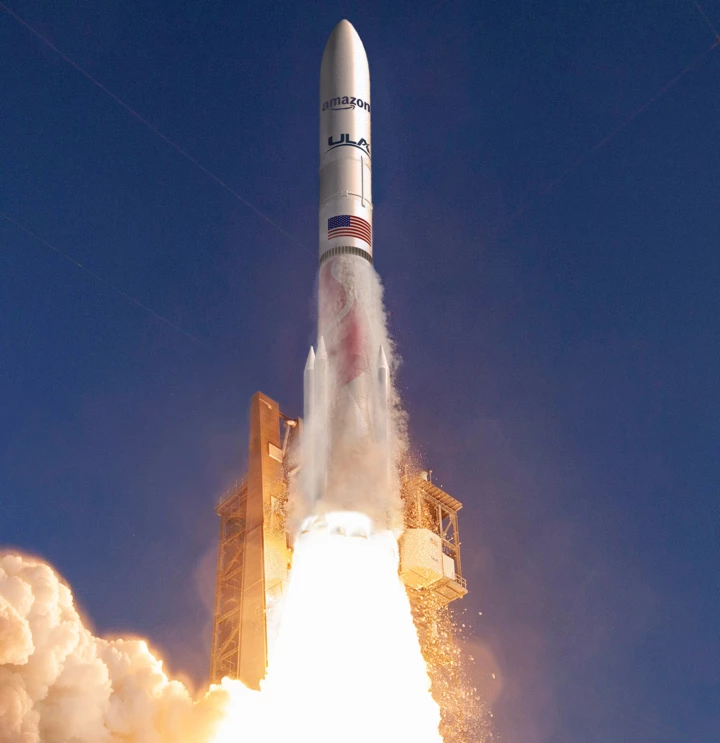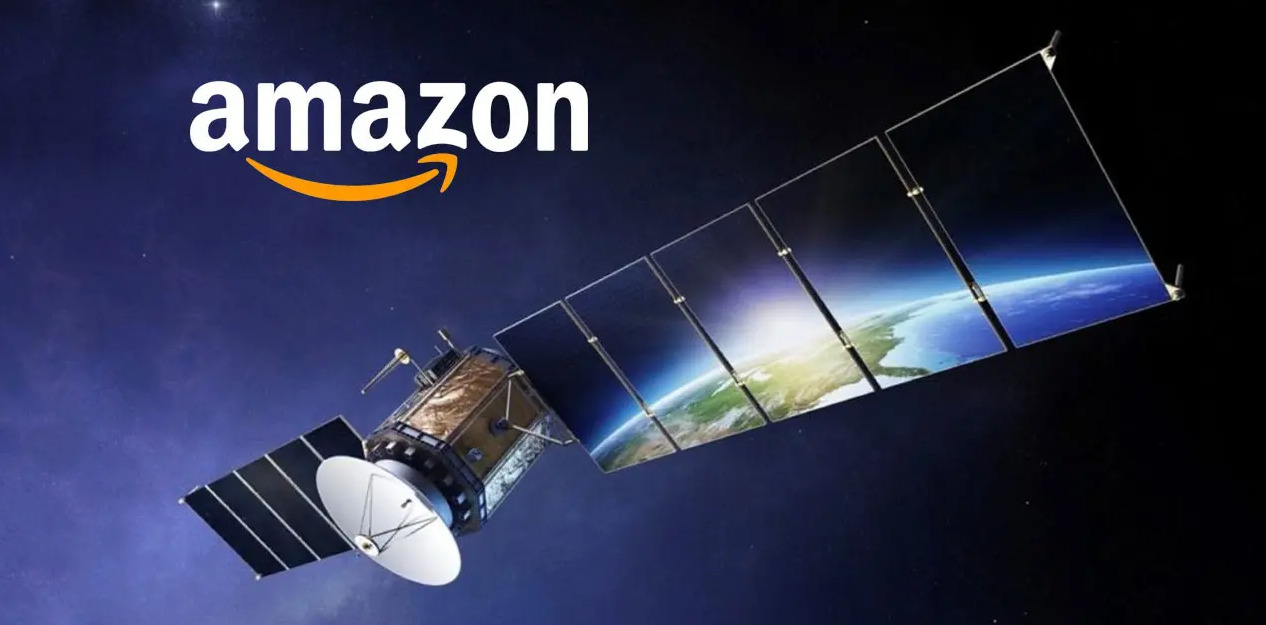Amazon launches the first satellites for the internet service, competing with Starlink

The United Launch Alliance launched two prototypes Oct. 6 for the more than 3,200 Project Kuiper broadband satellites that Amazon plans to build and deploy over the next six years. With these tools, Amazon wants to provide a service similar to that already provided by Starlink and Chinese operators: satellite internet.
An Atlas 5 rocket carrying the satellites lifted off at 2:06 p.m. Eastern from Space Launch Complex-41 at Cape Canaveral Space Force Station, Florida, and left them in low Earth orbit about 18 minutes later.
The launch was delayed for six minutes following a warning that its trajectory would pass too close to another object already in space.
It was the 99th launch of an Atlas 5 and the eighth time the rocket has flown in its 501 configuration after debuting in April 2010.
It is also the 20th mission the Boeing-Lockheed Martin joint venture has flown for a commercial customer, out of 158 launches since ULA was founded in 2006.

Amazon said its mission operations center in Redmond, Washington, confirmed first contact with KuiperSat-2 at 2:43 p.m. Eastern and first contact was made with KuiperSat-1 nine minutes later.
KuiperSat-1 and KuiperSat-2 allow Amazon to test space and ground systems for the Kuiper project from an altitude of 500 kilometers before the full-scale production launch begins next year.
Prototypes were initially expected to fly by the end of last year with ABL Space Systems, before the rocket developer's RS1 vehicle suffered setbacks. They were moved to the debut launch of ULA's Vulcan Centaur, which was supposed to fly in early 2023, only for that rocket to become caught up in development delays.
ULA said following the Amazon mission that its next launch will be for Vulcan, expected no earlier than December.
Amazon has booked eight of the 17 remaining Atlas 5 rockets before ULA moves on to Vulcan, but these are not the only space trips booked by the company, in fact they are a small part of them: in total Amazon has booked 77 flights, and all from competing operators of Elon Musk's SpaceX.
The company has also booked 38 Vulcan flights, 18 Ariane 6 launches from Arianespace and up to 27 New Glenn missions from Blue Origin, owned by billionaire Amazon founder Jeff Bezos.
Ariane 6 and New Glenn are also experiencing significant development delays and, like Vulcan, have yet to launch.
During a Sept. 11 panel at Euroconsult's World Satellite Business Week in Paris, executives from ULA, Arianespace and Blue Origin said they can still meet Amazon's deployment schedule despite rocket delays.
Amazon must deploy at least half of the proposed 3,236 satellites by July 2026 under the terms of the Federal Communication Commission license, and the remaining satellites three years later.
Test series
Amazon has released some details about the Project Kuiper satellites it plans to build at manufacturing facilities in Kirkland, Washington.
Analysts predict the full-size Project Kuiper spacecraft will weigh more than 500 kilograms for a Ka-band network seeking to meet the broadband needs of consumer, enterprise and government customers around the world.
The company unveiled three antenna prototypes in March, ranging from the size of Amazon's Kindle ebook reader that promises speeds of up to 100 megabits per second, to a 48-centimeter by 76-centimeter diameter device capable of reaching up to 1 gigabit per second. The download speed should be 100 mbps, , 400 mbps and 1 gbps depending on the versions.
The plan calls for Kuiper-1 and Kuiper-2 to test space systems that will be used on operational spacecraft, including how they connect to terminals and the ground infrastructure needed to support them.
“This is the first time Amazon has put satellites in space, and we will learn a great deal regardless of how the mission unfolds,” Project Kuiper vice president of technology Rajeev Badyal said in an Oct. 3 blog post about the launch.
The company said it plans to actively deorbit both satellites after their mission, before they naturally burn up in Earth's atmosphere in an uncontrolled descent, but provided no details.
The first production satellites are expected to launch in the first half of 2024, Amazon added, allowing beta tests with the first commercial customers by the end of that year.
The low orbits are becoming extremely busy, between Spacelink, Kuiper and the Chinese constellation. this will create a problem for orbital space launches in the future. At the same time we will see how competition between the various players will develop.

Thanks to our Telegram channel you can stay updated on the publication of new Economic Scenarios articles.
The article Amazon launches the first satellites for internet service, competing with Starlink comes from Economic Scenarios .
This is a machine translation of a post published on Scenari Economici at the URL https://scenarieconomici.it/amazon-lancia-i-primi-satelliti-per-il-servizio-internet-concorrenti-di-starlink/ on Sat, 07 Oct 2023 08:00:21 +0000.

